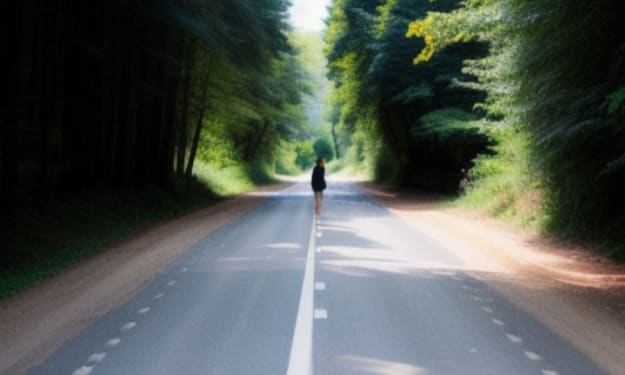
When one thinks of poetry, they might think of William Shakespeare or Emily Dickinson. What they might not think of is what poetry actually is: “the spontaneous overflow of powerful feelings” (Wordsworth). Poetry is so much more than just words on a page, it is the emotions and experiences of the poet put into words. It is a way for the poet to share their innermost thoughts and feelings with the world.
Poetry is often seen as something that is difficult to understand. However, it does not have to be. It is just a matter of reading and re-reading a poem, and letting the words wash over you. Slowly, you will start to see the hidden depths of the poem, and what the poet is trying to say. It is a way to connect with the poet on a deeper level, and to understand their thoughts and feelings.
- The purpose/importance of poetry
- The history of poetry
- The different types of poetry
- The elements of poetry
- How to write poetry
- The purpose/importance of poetry
Poetry is often seen as being nothing more than words on a page, but it can actually be so much more than that. Poetry can be a form of self-expression, a way to explore emotions, and a tool for communicating complex ideas. It can also be a way to connect with others, to tell a story, or to simply enjoy the beauty of language.
Poetry can be therapeutic, helping us to process difficult emotions and to make sense of our experiences. It can be a source of comfort, offering a different perspective on the world and on our place in it. It can also be a source of joy, helping us to see the beauty in everyday moments.
Poetry can be a powerful form of social commentary, shining a light on the issues that matter to us and giving voice to the voiceless. It can be a force for change, challenging us to think differently about the world and about ourselves.
Ultimately, poetry is what we make of it. It can be anything we want it to be, and it can be a source of strength, hope, and inspiration in our lives.
- The history of poetry
Poetry has been around for centuries, and it has been used as a means of communication and expression since the very earliest civilizations. The first known examples of poetry date back to around 3000 BCE, and come from ancient Sumer. These early poems were often about topics such as love, loss, and the changing seasons.
Throughout history, poetry has remained an important medium of expression for people all over the world. It has been used to express emotions and tell stories in a way that is both beautiful and powerful. In the modern day, poetry is still valued and appreciated by many people.
- The different types of poetry
Poetry is more than just words on a page. It is an art form that uses language to create aesthetic and emotional effects. There are many different types of poetry, each with its own distinct style and purpose.
Lyric poetry is perhaps the most well-known type of poetry. It is often emotional and musical, and often uses imagery and metaphor to convey its message. Lyric poetry can be found in songs, sonnets, and odes.
Narrative poetry tells a story. It can be dramatic, like an epic poem, or it can be more light-hearted and playful. Ballads are a type of narrative poem that often tell a folk story or legend.
Didactic poetry is didactic because it is meant to teach. It is often didactic because it is meant to teach. It is often didactic because it is meant to teach.
Descriptive poetry paints a picture with words. It uses vivid imagery and sensory detail to create a vivid, sensory experience for the reader.
Aubade poetry is a type of poem that is traditionally about the dawn, or about love and separation.
There are many other types of poetry, including haiku, ghazals, villanelles, and sestinas. Poetry is more than just words on a page - it is a way to view the world and to express oneself in a creative and emotional way.
- The elements of poetry
Poetry is so much more than just words on a page. Though the words are important, it is the way that they are put together that makes poetry special. The arrangement of the words, the rhyme scheme, the meter, and the stanza structure all contribute to the overall effect of the poem.
Take, for example, the opening stanza of Robert Frost’s “The Road Not Taken”:
Two roads diverged in a yellow wood,
And sorry I could not travel both
And be one traveler, long I stood
And looked down one as far as I could
To where it bent in the undergrowth;
Notice how the poem is divided into two stanzas of four lines each. The first and third lines of each stanza rhyme, as do the second and fourth. This rhyme scheme is known as AABB. The poem also has a specific meter, or pattern of stressed and unstressed syllables. In this case, it is iambic tetrameter, which means that each line has four iambs, or pairs of syllables with the emphasis on the second syllable. (The word “yellow,” for example, is an iamb.) This regular rhythm helps to create a sense of forward motion, which is appropriate for a poem about taking a journey.
All of these elements combine to create a poem that is more than just a series of words. They work together to create a meaningful and memorable experience for the reader.
- How to write poetry
There is no single answer to the question of how to write poetry. However, there are a few things that all good poems have in common. First, a good poem must have a strong emotional core. The best poems are those that make the reader feel something deeply. Second, a good poem must be well-crafted. This means that it should have a strong structure, using devices such as rhyme and meter to create a pleasing effect. Finally, a good poem should be fresh and original. This means that it should offer a new way of looking at the world, or a new way of expressing emotions.
Poetry is one of the oldest art forms in the world and it is still very popular today. Poetry is more than just words on a page, it is a way to express yourself and your emotions. Poetry can be very moving and can make you feel things that you never thought possible. If you have never read a poem, or if you have never written one, I encourage you to give it a try. You might just find that you enjoy it more than you thought you would.
About the Creator
John Nogueira
I've had a passion for writing since I was very young and I've been improving my writing and creative skills over time. I write articles and compositions about music, literature, poetry, politics, art and philosophy.






Comments (1)
Thanks for the breakdown of the different types of poems - I didn't know they are so many!